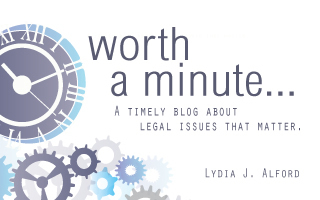Many clients consult with Alford & Alford regarding preparation and management of such matters as
- wills,
- Louisiana succession and probate proceedings,
- living wills,
- powers of attorney, and
- practical strategies.
Last Will and Testament
My spouse and I have worked hard to accumulate assets. I want my spouse to inherit my property first, then my children when both of us are deceased. You absolutely must have a will to accomplish this, no ifs, ands, or buts about it. If you die without a will, your children will inherit the assets, not your spouse, and if you have no children, your brothers, sisters and parents will inherit your separate property over your spouse. Call Alford & Alford immediately if you do not have a will giving your property to your spouse.
This is my second marriage. I have children from my first marriage. How do I protect both my spouse and my children? This is a common situation and the decision is personal to each spouse. However there are ways to plan your estate to protect both your spouse and your children. Call us for appointment to discuss your options.
A testament allows for a deliberative distribution of assets. The testament can incl ude a general disposition of assets, or it can be very specific. But in either event, the testator is in control and can prevent a free for all for the distribution of assets. Contact us to draft a will for the methodical distribution of your assets.
ude a general disposition of assets, or it can be very specific. But in either event, the testator is in control and can prevent a free for all for the distribution of assets. Contact us to draft a will for the methodical distribution of your assets.
I’m living in my spouse’s house. What rights do I have to continue to live in the house after his death? You will have no rights to continue to live in the house unless your spouse has a will giving you either the property outright or the right to live in it. Do you have a sister, brother, child, other relative, friend or colleague that falls into this scenario? If yes, make sure they are aware of how vulnerable the surviving non-owning spouse is when the other spouse does not have a will. Consult with us to create a plan to both ensure the surviving spouse will have a place to live and to protect the asset for the heirs.
I understand Louisiana had a major change in its inheritance laws in 1996. My will is dated before 1996. Do I need a new will? Maybe. Let us look at your will and we’ll let you know.
You child’s divorce could effect your will. Are your minor grandchildren living with your former son-in-law or former daughter-in-law? If your child predeceases you, are you comfortable with the former spouse controlling and managing your minor grandchild’s inheritance? If  not, then you need a will. Call us to discuss your comfort level and ways to designate someone else to administer your grandchild’s inheritance.
not, then you need a will. Call us to discuss your comfort level and ways to designate someone else to administer your grandchild’s inheritance.
Are you divorced and have minor children? If yes and you do not want your former spouse to control the inheritance of your minor children, then you must have a will. Call us to discuss the alternatives you have to achieve your objective.
Adult child living in your house with you? If yes, you need a will regardless of whether you want the living arrangement to continue or not after your death. Serious consideration should be given to family dynamics, property law and inheritance laws in deciding how to handle this situation. This is an increasingly common situation that is fraught with issues. Call us immediately to address an amicable solution that will not forever damage family relationships.
 I have a will but I made it in another state. Now that I live in Louisiana, do I need a new will? Probably not. But for practical and economical reasons, you might want to make a new will. Special rules apply to probate out of state wills. Sometimes it is cheaper to make a new will than incur additional probate expenses. Come meet with us so we can evaluate the applicable state laws and the benefits of executing a new will.
I have a will but I made it in another state. Now that I live in Louisiana, do I need a new will? Probably not. But for practical and economical reasons, you might want to make a new will. Special rules apply to probate out of state wills. Sometimes it is cheaper to make a new will than incur additional probate expenses. Come meet with us so we can evaluate the applicable state laws and the benefits of executing a new will.
I will have a complicated estate.Then a will is a must because within the will you can name the person(s) best qualified in terms of business sense and personality to act as executor. Consult with us for a general discussion of the duties of the executor and for suggestions on who you can name as your executor(s).
Do you want to be cremated? If so, you need a will. If you do not state this in your notarized will or other acceptable statement to the funeral home, then each of your children will have to agree to the cremation. Otherwise, it cannot be done.
Ease of administration. Not too long ago, Louisiana simplified its estate procedure giving the executor greater latitude in administration. This new procedure can be adopted in the will. If not, then all of the heirs must agree in writing to the new procedure. If one heir is suspicious, justifiably or not, of the named executor and refuses to consent, the new administration procedure cannot be used. This could increase legal fees and court costs. Ready to get started? Schedule a consult now.
See these 13 legal myths for surprising misconceptions on Louisiana wills and powers of attorney.
 Don’t put your head in the sand.
Don’t put your head in the sand.
Do you have a child that has credit troubles or difficulties managing money? Then you need a will.
Do you have a child that is motivated by money? Then you need a will. Do you have children that do not get along? Then you need a will. Most parents are aware of issues between siblings or the selfish, and quite frankly the greedy, personality of some heirs. The responsible action in that instance is to have a will that distributes the assets in such a way to preserve family harmony as much as possible. To act like an osterich can lead to family relationships that are forever broken after the parent’s death. While “It will be their problem after my death” is said many times jokingly, it is really no laughing matter. The failure to account for sibling personalities will only create a legacy of lasting hard feelings. A last will and testament can go a long way to preserve family relationships. And, what better legacy is there than that? Consult with Alford & Alford to talk about the advisability of co-ownership of property among children that don’t get along or among children with credit problems and how you can develop a will to best address these issues.
Do you have a child on government assistance? Then you need a will to preserve the government assistance.
Summary: “Do I really need a will?”
- Absolutely if you want your spouse, not your children, to inherit your assets.
- Emphatically yes if you solely own the house you and your spouse are living in and you want your spouse to either own the house or have the right to continue to live in the house after your death.
- Maybe, if you have minor children under the custody of a former spouse.
- Yes if you have children who have credit troubles or cannot manage money.
- Yes, if you want some control over the timing of asset distribution.
- Yes, if you want to name the executor of your estate and make sure he/she has all the rights and privileges with as few constraints as possible.
- Yes, so you can notify all involved of preferences for guardians for your minor children.
- Yes, if you want to make special or specific bequests of assets.
Now ask yourself: In light of the issues raised above, does your spouse, parent, sibling, child or friend need a will?
See our blog 14 Compelling Reasons You Need a Last Will and Testament
Click here for a brochure on reasons for a last will and testament.
Examples of estate administration that is more complicated and expensive than necessary
“Estate”, “probate” and “succession” are frequently used interchangably. Each describes the process by which assets are transferred from the deceased to the heirs. Sometimes the estate is simple and the assets are transferred directly from the deceased to the heirs. Sometimes the estate is complicated or special issues arise so that the executor must be appointed to marshal the assets, pay the bills, and then distribute the assets. Sometimes an administration is necessary because the deceased did not plan adequately, resulting in legal fees and costs that with planning could have been avoided. The following are examples of the consequences of lack of planning.
Failure to get an estate in order upon diagnosis of a serious illness. We often hear from survivors that they felt it was inappropriate to ask about estate planning once the illness of their loved one arose. Many times the best course of action would have been to address very se rious issues; as a consequence the administration of the estate was much more complicated and expensive than it needed to be. So, it is up to you, as soon as you can after the diagnosis, to take care of your estate plan. Hopefully, it won’t be too late at that point. Don’t procrastinate. Your condition could worsen unexpectedly and all of a sudden it could be too late to take action. Call us; the peace of mind of your loved ones depends on it. It is not unusual for our attorneys to travel to the client to execute documents, or execute them after hours, on weekends or on holidays. It is that important.
rious issues; as a consequence the administration of the estate was much more complicated and expensive than it needed to be. So, it is up to you, as soon as you can after the diagnosis, to take care of your estate plan. Hopefully, it won’t be too late at that point. Don’t procrastinate. Your condition could worsen unexpectedly and all of a sudden it could be too late to take action. Call us; the peace of mind of your loved ones depends on it. It is not unusual for our attorneys to travel to the client to execute documents, or execute them after hours, on weekends or on holidays. It is that important.
Failure to designate beneficiaries on accounts. Make sure you have named beneficiaries on your life insurance, IRA, retirement accounts and other assets with beneficiary designations. But don’t stop there. The designations should be periodically reviewed to make sure deceased persons are not named. Failure to name a beneficiary or to have a deceased person named as the beneficiary will trigger an administration of the estate that may not have otherwise been necessary. Here’s what will happen if the beneficiary designation is lacking: An administrator/executor will have to be appointed or qualified by the Court. Hopefully, the deceased had a will that waived the bond, if not, then the administrator/executor may have to post a bond of 125% of the value of the assets. Once the administrator is qualified, the claim can be filed with the insurance company or other holder of funds. The check will be payable to the “Estate of X”. To negotiate the check, it will have to be deposited into an estate account; it cannot be deposited in the decedent’s account. To open the estate account, a taxpayer identification number must be obtained from the IRS. Once a taxpayer identification number is obtained, a fiduciary return may have to be filed with the IRS and state. Then the funds can be distributed to the heirs. So for lack of proper beneficiary designation, this legal process is invoked, resulting in legal and accounting fees that might not have otherwise been necessary. So take care of your affairs. Contact the company directly to verify your beneficiary designation and if necessary obtain a change of beneficiary form. Your financial planner should be able to assist with this as well.
Don’t delay in taking care of the probate/succession proceeding as soon as possible. Waiting can be costly and often falls into the category of estates that are more complicated than need be. While technically it may not be necessary to immediately institute the succession proceedi ngs, practical considerations suggest it would be wise to do so. Important legal documents, including a will, can be lost in the interval. The odds of a court probating a copy of will are not good. Or, it can prove to be impossible to recreate the value of assets and account balances years later. Banks don’t maintain records longer than seven years and real estate values are hard to determine as years go by. Consult with Alford & Alford to open the estate, or at the very least for suggestions on how to preserve important original documents and vital information for later proceedings.
ngs, practical considerations suggest it would be wise to do so. Important legal documents, including a will, can be lost in the interval. The odds of a court probating a copy of will are not good. Or, it can prove to be impossible to recreate the value of assets and account balances years later. Banks don’t maintain records longer than seven years and real estate values are hard to determine as years go by. Consult with Alford & Alford to open the estate, or at the very least for suggestions on how to preserve important original documents and vital information for later proceedings.
Matters associated with Last Will and Testament: Living Wills and Powers of Attorney
Adults of all ages, wealth and family circumstances should carefully evaluate their readiness for life’s events and eventualities. If you answer “no” to any of the following questions, you may need to consider a living will, healthcare power of attorney and/or general power of attorney.
- Have you taken necessary steps to provide for your spouse, children or other loved ones?
- Do you drive a lot?
- Are you engaged in risky activities?
- Do you have a family history of serious illness?
- Have you been recently diagnosed with an illness? If so, have you done all you can to prepare for the possibility of your physical or mental disability?
- Have you made sure your loved ones know what your quality of life beliefs and desires are?
Healthcare Powers of Attorney  Adults of all ages, wealth and familial circumstances should carefully evaluate their readiness for life’s events and eventualities. There are several reasons you, your spouse, your children, your grandchildren, your friends and your colleagues should consider a heatlthcare power of attorney. A healthcare POA allows someone else to assist with such issues as healthcare decisions, complying with insurance requirements and filing insurance claims, just to name a few.
Adults of all ages, wealth and familial circumstances should carefully evaluate their readiness for life’s events and eventualities. There are several reasons you, your spouse, your children, your grandchildren, your friends and your colleagues should consider a heatlthcare power of attorney. A healthcare POA allows someone else to assist with such issues as healthcare decisions, complying with insurance requirements and filing insurance claims, just to name a few.
- It’s not just your well being you need to consider, but just as importantly the effect of your health issues on your family. Your lack of planning can seriously affect the well being and quality of life of your loved ones. Don’t take that chance.
- Least of all, don’t procrastinate about the likelihood that you need a healthcare power of attorney, especially in light of the exponentially greater legal costs to your family to gain that authority through the judicial process, quite likely an interdiction (guardianship) proceeding. See the Elder law page for a discussion on the cost of this procedure.
- In light of current privacy policies enforced by health insurance companies, all adults need a healthcare power of attorney; that includes young adults because they too are not insulated from accidents and illness.
- Don’t assume that the insurance company will communicate with your family members. Absent an emergency, the insurance company will likely refuse to speak to your spouse and children, much less other relatives, without verbal or written permission from you.
- Don’t procrastinate. Don’t take the chance that that there will be time to get one if you get sick; you may have an accident and there won’t be time; you may become ill suddenly and you won’t be mentally capable of signing a POA.
- Just ask a caregiver how thankful they were to have a healthcare POA.
Ten Reasons YOU Need a Healthcare Power of Attorney Now ask yourself: does your spouse, parent, sibling, child or friend need a healthcare power of attorney too?
General Power of Attorney  These types of powers of attorney require great trust. Unless specialized, the general POA grants the agent the authority to do anything and everything that the one granting the power could do. Consult with Alford & Alford for a full discussion of general powers of attorney, how they can be drafted with safeguards and alternatives to it. How about your spouse, parent, sibling, child or friend, do any of these need a general power of attorney? See 7 Actions a POA Agent Should Avoid for guidance to agents on how to manage their responsibility.
These types of powers of attorney require great trust. Unless specialized, the general POA grants the agent the authority to do anything and everything that the one granting the power could do. Consult with Alford & Alford for a full discussion of general powers of attorney, how they can be drafted with safeguards and alternatives to it. How about your spouse, parent, sibling, child or friend, do any of these need a general power of attorney? See 7 Actions a POA Agent Should Avoid for guidance to agents on how to manage their responsibility.
Living Wills Living wills can promote harmony among family members and/or the healthcare providers. It also gives family members the much needed comfort of knowing that the decisions they make are consistent with the wishes of their loved ones. We routinely hear from survivors how thankful they were to have a living will or at least to have had end of life discussions so that they are not forever riddled with doubt about whether they made the right decision. These documents allow individuals to give advance directives on the use or withholding of life-sustaining medical treatment, should the individual be unable to make those decisions at a time of need. Living wills can be tailored to the desires of the individual to withhold treatment or provide full or limited courses of treatment. Generally, under the form sanctioned by state law, the signor can choose between withholding all forms of treatment, or just withholding nutrition or withholding hydration. The general form allows for pain treatment for comfort care. Consult with Alford & Alford if you would like to execute one of these directives.
Practical Strategy Whether the living will and/or one or both types of powers of attorney are executed,  the signor should request that more than one original be executed or obtain multiple true copies, especially if more than one agent is appointed and to account for the loss, destruction or surrender of originals. Recent events indicate that more and more institutions are requiring an original for their files, not copies. In addition, some banks are accepting only their power of attorney forms. So be sure to check with your bank on its POA policies.
the signor should request that more than one original be executed or obtain multiple true copies, especially if more than one agent is appointed and to account for the loss, destruction or surrender of originals. Recent events indicate that more and more institutions are requiring an original for their files, not copies. In addition, some banks are accepting only their power of attorney forms. So be sure to check with your bank on its POA policies.  Finally, wills, living wills and powers of attorney are very important documents and should be kept in a safe place such as a bank safe deposit box, or if that is not available, then in a fire proof box, with the highest burn rating as possible.
Finally, wills, living wills and powers of attorney are very important documents and should be kept in a safe place such as a bank safe deposit box, or if that is not available, then in a fire proof box, with the highest burn rating as possible.
Planning Ahead: Many of these issues require advance planning to achieve optimal benefits. For further guidance, contact Alford & Alford to schedule a consult.
See these 13 Legal Myths for common misconceptions of Louisiana law on wills and powers of attorney.
Medical History Form, an important tool for those assisting with your healthcare needs.

